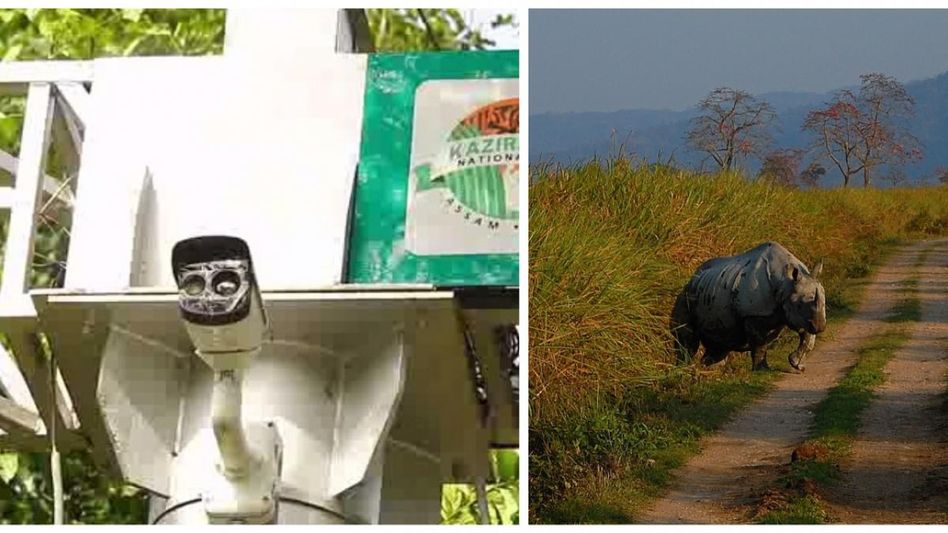Assam: Kaziranga's endangered animals in peril as sensor cameras on wildlife corridors remain non-functional
Failure to re-operationalize ANPR cameras raises concerns for wildlife safety
 Assam: Kaziranga's endangered animals in peril as sensor cameras on wildlife corridors remain non-functional
Assam: Kaziranga's endangered animals in peril as sensor cameras on wildlife corridors remain non-functionalThe critically endangered animals of Kaziranga National Park and Tiger Reserve in Assam face an increased risk as the sensor cameras installed on the wildlife corridors have been left non-functional, highlighting a significant lapse in wildlife conservation efforts. The development has sparked concerns among environmentalists and wildlife activists, who fear that the absence of monitoring systems could have severe consequences for the region's precious fauna.
The issue was brought to light through a letter penned by Rohit Choudhury, an RTI and environment activist, to the Chief Secretary of the Assam Government. Choudhury's letter highlighted the non-functioning of six speed-sensing cameras equipped with Automatic Number Plate Recognition (ANPR) Radar, which were installed in the designated animal corridors of Kaziranga National Park along National Highway-37. These cameras were meant to detect speeding vehicles and discourage reckless driving within the park premises.
The installation of these cameras was a response to the orders of the National Green Tribunal, aimed at curbing vehicles exceeding the speed limit of 40 km/hr along the 44-kilometer stretch from Rangalu to Borjuri on National Highway-37. The ANPR-equipped cameras were expected to help enforce this directive and protect the wildlife traversing the area. However, since February 1, 2023, the cameras have remained non-functional, reportedly due to the service provider, M/s Datalogic, ceasing operations due to non-payment by the park authorities.
According to Choudhury's letter, the Assam Forest Department had allocated a substantial budget of over Rs.4.95 crores in the 2022-2023 budget for the maintenance of these cameras. However, the delay in releasing payment to the company responsible for their installation has resulted in the cameras being rendered useless, thereby increasing the vulnerability of endangered animals in the park.
The absence of functioning cameras has led to a surge in instances of rash and negligent driving along the designated corridor areas, posing a grave threat to the wildlife. This risk is particularly alarming considering the upcoming flood season when migratory fauna heavily rely on these corridors for safe passage.
The non-functional cameras also bring to light the violation of the orders issued by the National Green Tribunal, which emphasized the need for effective monitoring of vehicle speed in the area. The disregard for these orders not only jeopardizes the safety of wildlife but also undermines the conservation efforts undertaken by the Assam Police, with commendable support from the Chief Minister of Assam, to combat rhino poaching in Kaziranga National Park.
Copyright©2024 Living Media India Limited. For reprint rights: Syndications Today








